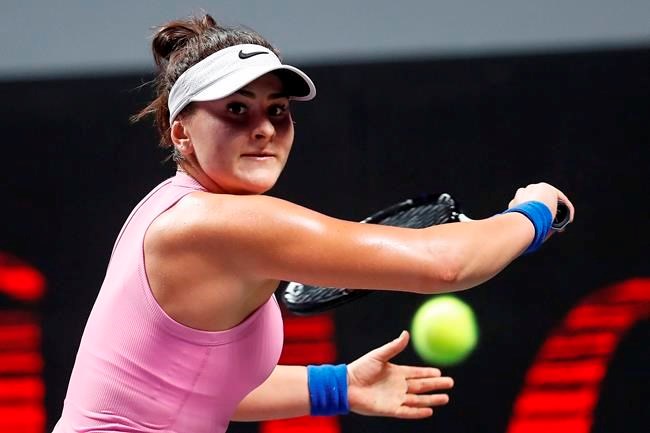TORONTO — Allison Sandmeyer-Graves believes the appetite for information about women in sport is at an all-time high. The opportunity to make an impact is huge.
And so with an aim of being more accessible, the Canadian Association for the Advancement of Women in Sport and Physical Activity (CAAWS) unveiled a new name — Canadian Women & Sport — and logo on Monday.
"Broadly in the big context right now, there's so much attention on women in sport that there is a real appetite I think for the conversation. And people are looking for solutions," said Sandmeyer-Graves, the national organization's CEO.
"And CAAWS is really well-known among certain elements of the sports system. But as people are looking for solutions, as they are looking for support, having this fresh brand that's more accessible, more relevant, more approachable, will help us reach and engage people who could benefit from what the organization has to offer, as far as data to help inform decisions and solutions to help making change a little easier."
Founded in 1981, the organization is dedicated to creating an equitable and inclusive Canadian sport and physical activity system.
Canadian Women & Sports unveiled its rebranding, which was created by Canadian agency Republic, with a manifesto video.
"For girls, there are additional forces preventing them from playing," says the video's voiceover — with a shot of two young boys running past a little girl standing shyly on the sidelines of a soccer practice. "Our challenge is to keep girls in the game. Because girls who stay in sports become women who rise to a challenge, achieve their potential and make the world a better place. Because when inclusion is not just a buzz word, we all benefit."
It's a good time for Canadian women in sport, with the rise of tennis star Bianca Andreescu and golf's Brooke Henderson among others. Canadian women are expected to climb the medal podium at the Tokyo Olympics in a variety of sports.
But the headlines haven't been all positive. In track and field, Megan Brown went public in a recent Globe and Mail article alleging Guelph and national team coach Dave Scott-Thomas groomed her for sex when she was still in high school. The allegation has not been proven in court.
"There's so much opportunity for impact right now," Sandmeyer-Graves said. "Just given the way that the women in sport conversation has become mainstream, for good reasons and for bad.
"But the fact that we've been talking about it, and that these at times negative stories are coming forward, those stories have always existed in sports, but they haven't been considered newsworthy, or they just haven't been brought to light of day. And so whether it's from a positive angle or a negative angle, I think there's a lot of forces . . . that are really motivating people to sit up, pay attention and to do something about it. So we really see that that's where Canadian Women & Sports comes in, to be that solutions partner."
The organization will celebrate its 40th anniversary next year. The landscape of women in sport looked markedly different in 1981, said Sandmeyer-Graves. There's been a huge tangible shift in the conversation.
"That's giving us so much optimism in that people are asking less and less: Why should we do this? Why should we care? Why should we bother? And they're asking question: Okay, I'm in. How do we do this? How do I bring the right leadership forward? How can I make take steps that can create real change?"
Sandmeyer-Graves said Canada is a global leader in inclusion, and "we have a lot to be proud of.
"And we've just got to keep challenging ourselves to take it even further, so that we can turn around and look at this period in time and say, 'Wow, that was such a turning point for women in sports. And we fully capitalized on it.'"
This report by The Canadian Press was first published Feb. 24, 2020.
Lori Ewing , The Canadian Press




